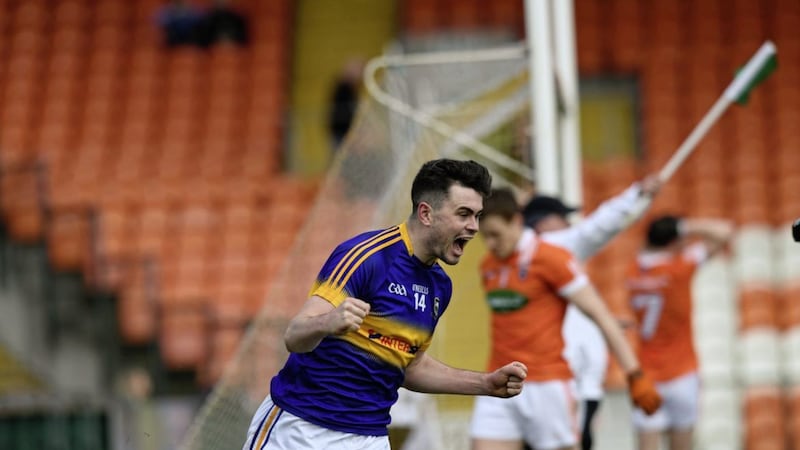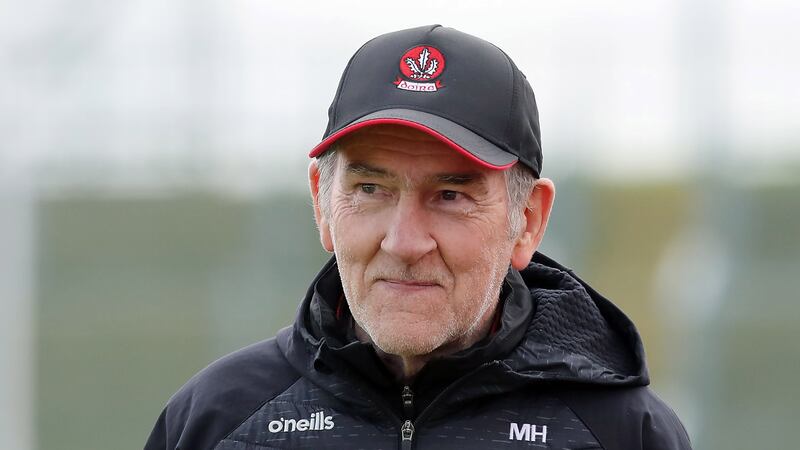WITH no space on the TV schedule for the Irish Cup semi-final between Coleraine and Glenavon, the much-maligned (often rightly) BBC NI fed the public’s passing interest through a Facebook live video.
It was an imaginative piece of thinking and one that has worked well for them over the past few months.
The Irish League has always been blessed by its Saturday evening highlights even when attendances have made it hard to justify down the years.
But no matter how bad it is, if you put it right in front of people, they will watch it.
So far, over 200,000 people have watched at least part of their coverage of Saturday’s game.
The previous evening, Conan Byrne scored from the halfway line for St Pat’s Athletic in their Airtricity League win over Bohemians.
RTÉ’s soccer boffins jumped on it, and sent the tweet out later that night.
So far, there have been 1,500 retweets and 200,000 views on that as well.
And Michael Quinlivan’s dramatic, promotion-winning goal for Tipperary? At the time of writing yesterday, there were 129 views on YouTube.
Now, if you’re an Armagh supporter, you mightn’t have thought the final few seconds in the Athletic Grounds all that magical.
You might have wondered how a team protecting a two-point lead in such circumstances could get caught with 50 yards of space down the middle of their goal five minutes into injury-time.
But as a neutral, it was a magnificent moment of sporting drama.
Only for an opportunist cameraman who captured the dying seconds in Armagh, we’d never have known what those dramatic final few seconds looked like.
In Brewster Park at almost exactly the same time, Fermanagh goalkeeper Thomas Treacy set the ball on his tee with his side staying in Division Two.
Thirty seconds later, they were relegated, bottom, leapfrogged by both Derry and Down.
Carlus McWilliams’s winner was a thing of beauty that unleashed wild celebrations among the Derry players and their 17 supporters.
But as the final whistle sounded, news was just coming in from Páirc Úi Rinn that, having trailed for the entire game, Down had completed their seemingly impossible recovery by salvaging a draw with Cork.
Two minutes earlier, Jack McCaffrey had almost burst a hole in the roof of Rory Beggan’s net in Clones to steal victory for Dublin over a Monaghan side that had looked set for the Division One final with even a draw.
And with that one kick of a ball, a Kerry side that started the day in sixth jumped all the way into a second straight League decider thanks to their win over Tyrone.
Then there were the dying moments in Corrigan Park, where Antrim fought bitterly to find a way past 13-man Longford but could only draw, and ended up relegated from Division Three on points difference.
The whole thing was a soap opera played out on grass.
Then League Sunday came on RTÉ and they had somehow managed to turn a Martin Scorsese script into Fair City.
It was so bland. Only the depth of Rory Kavanagh’s knowledge spared the embarrassingly brief discussions on Divisions Three and Four.
They had no coverage from either Fermanagh v Derry or the Division Three promotion decider in Armagh.
It was poor form from the national broadcaster that lent weight to those who oppose the idea of a tiered championship.
One of the strongest barriers to that is the weaker counties themselves, who fear being shunted into second-rate competitions that are played in front of no-one with no exposure.
After the weekend, you can understand their fear.
If they're asked, RTÉ will say they don’t have the rights to do more, as will Sky.
They don’t have the rights because they don’t want them. Both have easily enough financial muscle to squeeze TG4 out without the Irish language broadcaster even considering the arm-wrestle.
When the GAA signed its first controversial Sky Sports deal, their argument was that it was so that they could promote the game.
The woeful viewing figures have cleared that plume of smoke. If the interest was genuinely in promotion, they would just have shown the Ulster final, and the All-Ireland semi-finals and final.
Those are about the only Championship games that would promote Gaelic football in a positive light now. The rest merely highlight its failed structures through a variety of boring mismatches.
After the defence they mounted over the Sky deal, there’s more than a hint of irony about the GAA standing at the foot of the hill looking up at how its competitors showcase their games.
Imagine if RTÉ, Sky and TG4 – whose brilliance off a relatively small budget makes them exempt from this criticism - put their heads together for an afternoon like Sunday.
With all those resources, would it be so hard to produce, for just one day, a show that would truly showcase an afternoon that is almost unrivalled in the GAA?
A studio full of pundits, the freedom to show live clips and instant re-runs of highlights from football and hurling games, simultaneously broadcast across any platforms the three of them would wish to show it on.
Instead, they continue to do things the same way because that’s just how they’ve always been done.
The impressionable kids of this era that ingest everything the internet throws at them want footage, and they want it now.
That’s why the BBC showed an Irish Cup semi-final live on Facebook. It’s why Conan Byrne is a worldwide viral hit.
It will be 2022 before the GAA put pen to paper on their next rights deal – they have some serious thinking to do in that time.








